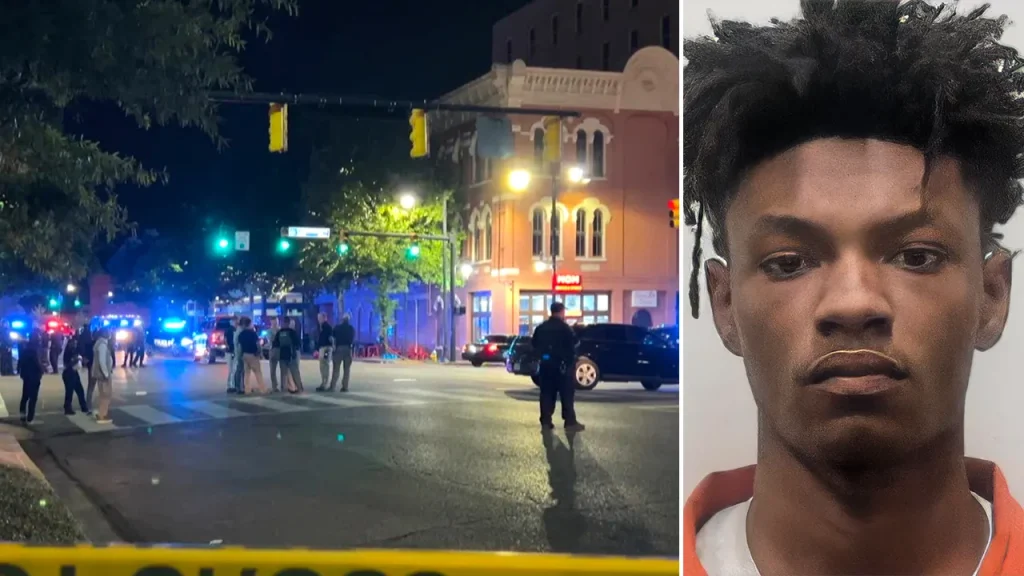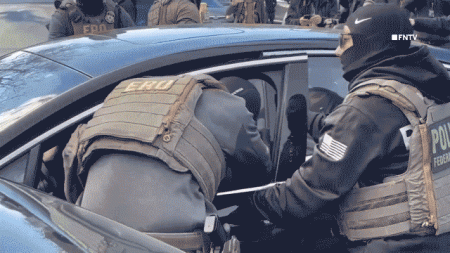Alabama Community Outraged as Shooting Suspect Released on Bond
In a shocking development that has sparked widespread community outrage, a 19-year-old suspect charged with attempted murder in connection with a deadly mass shooting in Montgomery, Alabama, has been released from jail after posting a $60,000 bond. The October 4 shooting, which erupted following the Morehouse-Tuskegee Classic college football game, left two people dead and twelve others injured. According to Montgomery Police Chief Jim Graboys, what began as a targeted attack on one individual quickly escalated into a chaotic exchange of gunfire as multiple bystanders allegedly pulled out their own weapons and began shooting. The violent incident has once again thrust Alabama’s bail laws into the spotlight, raising serious questions about public safety and the adequacy of bond amounts for violent offenders.
Javorick Whiting, arrested on October 16, spent just one day in custody before securing his release through a bail bond company. This rapid return to the streets has left many community members and officials stunned, especially considering the gravity of the charges against him. The Montgomery County District Attorney’s office has filed an emergency motion to increase Whiting’s bond, describing the current amount as “woefully inadequate” to protect the public from someone they characterize as a “dangerous and violent criminal.” The case highlights the delicate balance between constitutional rights to reasonable bail and legitimate public safety concerns, particularly in cases involving mass casualties and seemingly indiscriminate violence in public spaces.
The controversial release has drawn attention from Alabama’s highest levels of government, with Republican Governor Kay Ivey expressing her frustration in a public statement. The Governor pointed to Whiting’s release as evidence of a “legal loophole” that needs closing, referencing the “Safe Alabama package” she previously signed into law. Gov. Ivey specifically mentioned the upcoming vote to expand Aniah’s Law, legislation passed in 2019 after the murder of Aniah Blanchard by an individual who had been released on bond despite facing violent offense charges. The current law allows judges to deny bail for serious charges including murder, kidnapping, and rape, but notably does not include attempted murder – the charge Whiting currently faces.
Police Chief Graboys has emerged as another vocal advocate for expanding Aniah’s Law to include attempted murder among its list of eligible offenses. In statements reported by the Alabama Reflector, Graboys emphasized the need for both legislative and judicial assistance, suggesting that the current system lacks adequate mechanisms to keep potentially dangerous individuals detained until trial. The Montgomery shooting represents exactly the kind of case that demonstrates these shortcomings – with multiple shooters allegedly firing into crowds, creating a scene of chaos and devastating harm to numerous innocent bystanders. Only one of the fourteen victims was believed to be the intended target, underscoring the indiscriminate nature of the violence that unfolded that night.
The broader context of this case touches on ongoing national debates about bail reform, gun violence, and public safety. The shooting occurred in a public space following a popular college football game – the kind of community event that should bring people together rather than end in tragedy. For many community members, the quick release of a suspect in such a high-profile violent crime undermines faith in the justice system’s ability to protect the public. The Montgomery County District Attorney’s motion argues precisely this point, suggesting that Whiting’s actions demonstrate he poses a danger to the community and should remain incarcerated pending trial. The case also highlights concerns about the prevalence of firearms and the potential for disputes to escalate rapidly when multiple armed individuals are present.
As this case continues to unfold, Alabama voters will soon have the opportunity to weigh in directly on the issue when they vote on expanding Aniah’s Law in May. The proposed expansion would specifically add attempted murder to the list of charges for which judges can deny bail – directly addressing the situation that allowed Whiting’s release. Governor Ivey has already indicated her support for this measure, stating she “will not forget today’s troubling news when casting [her] vote.” The outcome of this ballot initiative could significantly reshape how Alabama’s criminal justice system handles similar cases in the future, potentially preventing situations where individuals charged with violent crimes like attempted murder can quickly return to the community while awaiting trial. For now, the Montgomery community must grapple with the reality that one of the alleged participants in a deadly mass shooting walks free among them, raising difficult questions about justice, safety, and the proper balance between individual rights and community protection.








